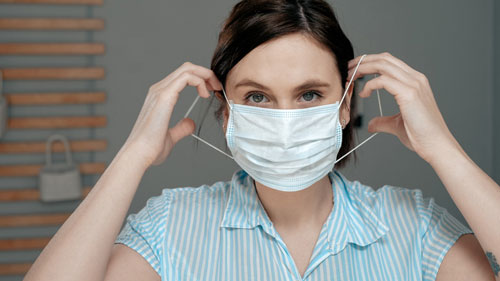There’s a health danger that is spreading even faster than the coronavirus.
Misinformation about COVID-19 is rampant.
Hundreds of Facebook posts and YouTube videos have gone viral with claims about the pandemic that have no basis in fact.
A study published online in BMJ Global Health has attempted to gauge the problem.[1]
The researchers focused on YouTube. They searched the website for the most popular videos having to do with coronavirus and COVID-19. They stuck with videos that were in English and were under an hour long.
They viewed the videos and assessed their accuracy and quality using a scoring system. They awarded points for factual information on symptoms, prevention, viral spread, epidemiology, and treatments. They also judged the usefulness of the content.
Of the 69 videos analyzed, more than a quarter, 27.5%, had bogus information.
Here’s the scary part…
The “fake news” coronavirus videos were wildly popular. They got more than 62 million views.
The study authors said it was “alarming, when considering the immense viewership” of the videos. “It has the significant potential for harm.”
One of the main topics of the misleading posts is facemasks.
Don’t Believe the Fake News About Facemasks
They are an easy target. Nobody likes wearing them. So many of us are open to suggestions that they don’t work or may even be harmful. Here are three widely circulated myths about masks along with the truth.
- Facemasks “activate” coronavirus. This allegation was made popular by the viral video Plandemic.
Plandemic is a 26-minute documentary that promotes baseless conspiracy theories about the coronavirus. In it, Dr. Judy Mikovits makes several false claims, including this: “Wearing the mask literally activates your own virus. You’re getting sick from your own reactivated coronavirus expressions.”[2]
There is no evidence this is true.
Richard Peltier is an assistant professor of environmental health sciences at the University of Massachusetts-Amherst. He said there is nothing about wearing a mask “that would have any biologically relevant impact on viral activity.”
“Wearing a mask simply catches the droplets before they reach our mouth or nose. It isn’t rocket science, and Dr. Mikovits should know that,” said Professor Peltier.[3] - Facemasks damage health by raising carbon dioxide levels. Hypercapnia occurs when there’s a buildup of carbon dioxide (CO2) in your bloodstream. This can happen when lungs don’t take in oxygen or expel CO2 as well as they should.[4]
There’s no evidence that hypercapnia happens due to facemasks. The covering may feel uncomfortable, but oxygen and CO2 molecules are small enough to pass through easily.[5]
The everyday experience of physicians backs this up. Victoria Forster is a cancer researcher at the Hospital for Sick Children. She points out that surgeons during long procedures “wear surgical masks for hours with no ill-effects on their carbon dioxide levels.”
Having a surgeon with an impaired mental state “would not be in the best interests of either the patient or the surgeon and thankfully, this simply does not happen,”[6] - Facemasks don’t work because viruses are so small that they can easily pass through cloth masks. It’s true that viruses themselves are small enough to pass through masks. But viruses in the air aren’t floating by themselves. They are contained in respiratory droplets that are big enough to be stopped by a mask.
To be sure, masks are not a foolproof way to stop from getting coronavirus, but they help. One study found they offer “five-fold protection” versus wearing nothing at all.[7]
To evaluate coronavirus information, consider three things:
- The credibility of the expert. Google the person’s name. Do they have legitimate scientific credentials? Do they have a history of peddling questionable information?
- The evidence. Is the information backed up by studies, statistics, and other sources? Or is the information purely someone’s opinion?
- The source. What’s the track record of the website or producer of the content? Do they have a political agenda that goes beyond providing health information?
When looking for information about the pandemic, remember this: The internet contains much of the world’s information. It also contains much of its disinformation. It’s crucial to be able to tell the difference.
Editor’s Note: Discover the single best supplement for stronger immunity… The fruit extract that helps 93% of people with respiratory viruses get better in just two days… The germ hotspot that most of us forget to sanitize. Find all this and more in Independent Healing’s Coronavirus Pandemic Guide. Go HERE.
Related Articles
Coronavirus Stress: 5 Ways to Keep Calm and Carry On
9 Coronavirus Symptoms You Should Watch For
Coronavirus: Seniors Are Showing Odd Symptoms
Like this Article? Forward this article here or Share on Facebook.
[1]https://gh.bmj.com/content/5/5/e002604
[2]https://www.politifact.com/article/2020/may/08/fact-checking-plandemic-documentary-full-false-con/
[3]https://www.chicagotribune.com/news/chi-covering-the-stunning-fall-of-judy-mikovits-20111122-story.html
[4]https://www.webmd.com/lung/copd/hypercapnia-copd-related#1
[5]https://healthfeedback.org/claimreview/wearing-face-masks-does-not-cause-hypercapnia-or-affect-the-immune-system/
[6]https://www.forbes.com/sites/victoriaforster/2020/05/12/wearing-a-mask-to-reduce-the-spread-of-coronavirus-will-not-give-you-carbon-dioxide-poisoning/#f3633a117f56
[7]https://www.theguardian.com/world/2020/apr/11/can-a-face-mask-protect-me-from-coronavirus-covid-19-myths-busted

